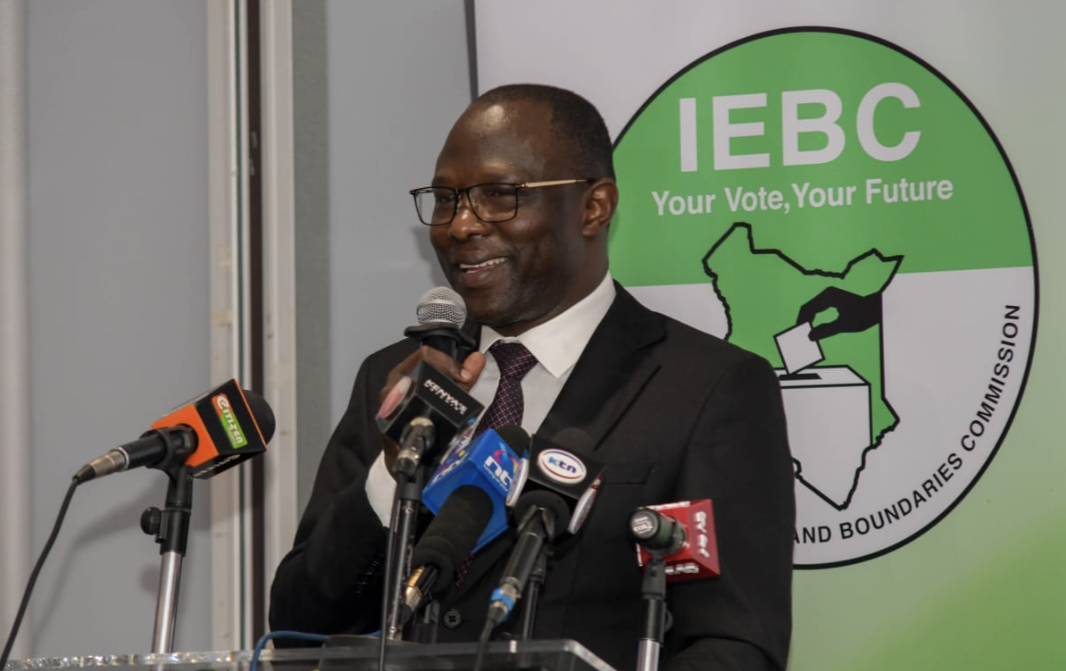
 IEBC chairperson Erastus Ethekon/HANDOUT
IEBC chairperson Erastus Ethekon/HANDOUT
The Independent Electoral and Boundaries Commission (IEBC) has announced that over 7,000 new voters have been added to the roll within the first four days of the ongoing Continuous Voter Registration (CVR) exercise.
In a press statement issued on Friday, the commission revealed that between September 29 and October 2, 2025, a total of 7,048 Kenyans registered as new voters.
Additionally, 259 voters successfully transferred their registration to preferred electoral areas, while eight individuals updated their details.
The CVR exercise, relaunched on September 29, is being conducted across the country except in electoral areas where by-elections are scheduled.
IEBC Chairperson Erastus Edung Ethekon said the commission is encouraged by the “progressive growth” in enrolments, adding that the exercise is aimed at ensuring inclusivity and accessibility for all eligible Kenyans.
“The Commission reaffirms its unwavering commitment to ensuring that voter registration services remain accessible, inclusive, transparent, and efficient,” he stated.
In a major shift, the commission has also enhanced its biometric registration system.
Previously, IEBC relied only on fingerprints and digital photographs for identification. This year, the iris has been added as an additional biometric identifier.
Ethekon explained that the new system is in line with Section 2 of the Elections Act. “The iris provides an alternative means of voter identification should fingerprint recognition fail,” he said.
The law allows biometric identifiers such as fingerprints, iris patterns, retina scans, DNA, voice waves, hand geometry, earlobe geometry, and signatures.
The IEBC also assured Kenyans that all data collected will be handled in compliance with the Data Protection Act, 2019.
“All data collected during voter registration is securely stored, accessed solely by duly authorised officers and applied strictly for its legally prescribed purposes,” the statement emphasised.
Ethekon further warned that “any unauthorised access, misuse, or compromise of voter data will attract the full sanctions of the law.”
As the exercise continues, the commission urged Kenyans, particularly first-time voters and the youth, to come out in large numbers to register. “Together, let us strengthen our democracy, safeguard our institutions, and secure the future of our nation,” Ethekon said.
The exercise will continue countrywide, with the exception of constituencies preparing for the November 27 by-elections.
The commission has allocated Sh8 billion—part of its total Sh57.3 billion election budget—to support the voter registration exercise.
Additional allocations include Sh2.5 billion for stakeholder engagement and voter education, Sh7 billion for replacing ageing KIEMS kits (Kenya Integrated Elections Management System) and Sh2.4 billion for system maintenance.
The resumption of voter registration has already attracted the attention of political parties and analysts alike


















